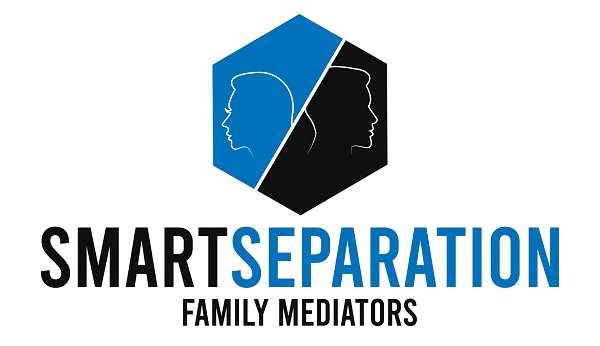When attending your first consultation with a Toronto Family Mediator, asking the right questions can make a significant difference in the success of your mediation. Understanding your mediator’s style, process, and expectations ensures you’re entering mediation informed, confident, and ready to work towards fair resolutions.
1) What is your experience with family mediation in Toronto?
- Knowledge of Ontario’s Family Law system
A qualified Toronto Family Mediator should be well-versed in Ontario’s Family Law Act, including how it applies to separation agreements, parenting arrangements, and financial support. - Familiarity with Toronto courts and legal culture
Ask whether the mediator has experience working within Toronto’s family court system or has collaborated with local family lawyers. This insight helps ensure your mediation process aligns with regional expectations and norms. - Experience with cases similar to yours (e.g., high-conflict, complex finances)
Inquire about the types of disputes they typically handle. If your case involves high-conflict parenting issues, self-employment income, or blended families, choose a mediator with direct experience resolving similar challenges.
2) What is your mediation style?
- Facilitative vs. evaluative mediation approaches
Ask whether the mediator uses a facilitative style—guiding the conversation while letting both parties generate their own solutions—or an evaluative style, where the mediator offers more direct feedback based on legal standards and likely outcomes. - How the mediator balances neutrality and guidance
It’s important to understand how your Toronto Family Mediator maintains neutrality while still helping you make informed decisions. Do they offer information about legal norms without giving legal advice? Do they intervene when conversations become unproductive? - Suitability of their style for your situation
Different styles work better for different dynamics. High-conflict couples may benefit from a structured, directive approach, while amicable separations may require a more flexible, collaborative tone. Make sure their mediation style aligns with your needs and comfort level.
3) How long does the average family mediation process take?
- Typical session counts for Toronto couples
Most couples in Toronto complete family mediation in 3 to 6 sessions, depending on the complexity of their issues. Parenting-only cases may require fewer meetings, while matters involving property division or spousal support can take longer. - Factors that extend or shorten timelines
Timelines vary based on conflict levels, readiness to negotiate, and whether full financial disclosure has been provided. Disagreements over children, hidden assets, or emotional resistance can add time, while mutual cooperation speeds things up. - How scheduling flexibility can impact completion
Some mediators offer evening or weekend appointments to accommodate work and parenting schedules. Greater availability on both sides often results in faster resolution, especially if sessions are booked closer together.
4) How do you ensure both parties are heard fairly?
- Techniques for equal voice during sessions
A skilled Toronto Family Mediator uses structured discussion formats, ground rules, and time-sharing techniques to ensure that each person has a fair opportunity to speak without interruption or dominance. - Managing power imbalances between spouses
If one party is more assertive or financially knowledgeable, the mediator may use shuttle mediation, private caucusing, or additional support measures to level the playing field and protect the more vulnerable party’s interests. - Ensuring active listening and respect
Mediators foster a respectful environment by modelling active listening, rephrasing key points for clarity, and pausing discussions when necessary to de-escalate tension—ensuring both voices are acknowledged and valued throughout the process.
5) What issues can we resolve through mediation?
- Parenting plans, child support, and spousal support
A Toronto Family Mediator can help you create detailed parenting schedules, determine decision-making responsibilities, and calculate child and spousal support based on Ontario’s legal guidelines. - Property division and debts
Mediation allows couples to divide assets such as bank accounts, pensions, and vehicles, and negotiate responsibility for shared debts—without going to court. Full financial disclosure is key to reaching a fair resolution. - Specific Toronto-related issues (e.g., matrimonial home sales)
In Toronto’s high-cost housing market, decisions around selling or retaining the matrimonial home are common. Mediators can assist in structuring agreements that address real estate equity, refinancing options, or temporary occupancy arrangements.
6) How do you handle high-conflict situations?
- De-escalation strategies during sessions
Experienced Toronto Family Mediators use calm, structured communication techniques to defuse tension. They may pause discussions, reframe inflammatory language, or shift focus to shared goals like children’s well-being. - Options for separate or shuttle mediation
When direct communication is too volatile, the mediator may offer shuttle mediation, where each party is in a separate room (or virtual breakout room), and the mediator moves between them to facilitate negotiation. - Managing emotional outbursts professionally
Mediators are trained to remain neutral and composed during emotional moments. They validate each party’s experience while keeping the session productive and focused, and may suggest breaks or rescheduling if emotions run too high.
7) Is mediation confidential in Ontario?
- Legal confidentiality protections under Ontario law
Yes, mediation in Ontario is generally confidential. Under the Ontario Family Law Rules and common law principles, discussions in mediation cannot be used as evidence in court, encouraging open and honest communication. - Exceptions to confidentiality (e.g., child protection concerns)
There are legal exceptions. Mediators must break confidentiality if they believe a child is at risk, someone may be harmed, or if required by a court order. These exceptions are clearly explained during the intake process. - Importance of private, secure communication
A professional Toronto Family Mediator will ensure that all communications—whether in-person or virtual—take place in a secure and private environment, protecting sensitive family and financial information throughout the process.
8) What documents should we bring to the first session?
- Financial disclosure forms
Bring completed Form 13 (Financial Statement) if support is involved, or Form 13.1 for property division. Include recent tax returns, pay stubs, bank statements, debt listings, and pension or investment documents. - Parenting proposals if applicable
If you have children, come prepared with a draft parenting plan, school schedules, or any notes on preferred custody arrangements. This helps guide discussions around parenting time and decision-making responsibilities. - Marriage certificate or separation documents
Provide your marriage certificate (or proof of common-law relationship) and any prior separation agreements, court orders, or legal correspondence relevant to your family law matters. This helps the Toronto Family Mediator understand your legal context.
9) What happens if we reach an agreement?
- Drafting a Memorandum of Understanding (MOU)
Once a resolution is reached, your Toronto Family Mediator will typically prepare a Memorandum of Understanding, summarizing the terms you’ve agreed upon. This is a non-binding document meant for review by both parties and their lawyers. - Turning agreements into a legally binding Separation Agreement
With the help of legal counsel, the MOU can be converted into a formal Separation Agreement that meets Ontario’s legal standards. This agreement must be signed, dated, and witnessed to become enforceable. - Lawyer review and court filing options in Ontario
Independent Legal Advice (ILA) is strongly recommended before signing. While Separation Agreements don’t need to be filed with the court, they can be submitted for enforcement—especially if they include support obligations or parenting terms.
10) What are the costs involved?
- Flat fee vs. hourly billing models for Toronto mediators
Many Toronto Family Mediators offer either hourly rates (typically ranging from $150 to $350 per hour) or flat-fee packages that include a set number of sessions and document preparation. Always clarify what services are included. - Range of typical mediation costs compared to litigation
Mediation is significantly more affordable than going to court. While full litigation can cost tens of thousands of dollars, most mediation cases are resolved for $1,500 to $5,000, depending on complexity and number of sessions. - Payment plans or subsidized options
Ask whether the mediator offers payment plans, sliding scale fees, or access to court-connected mediation services. In Ontario, families who qualify for Legal Aid or use Family Court Mediation Services may be eligible for free or low-cost mediation.
As an experienced family and divorce mediator in Toronto, I often write blogs to provide insights, tips, and resources on family mediation and divorce in Ontario. Follow my blog to stay informed and empowered during challenging times.



